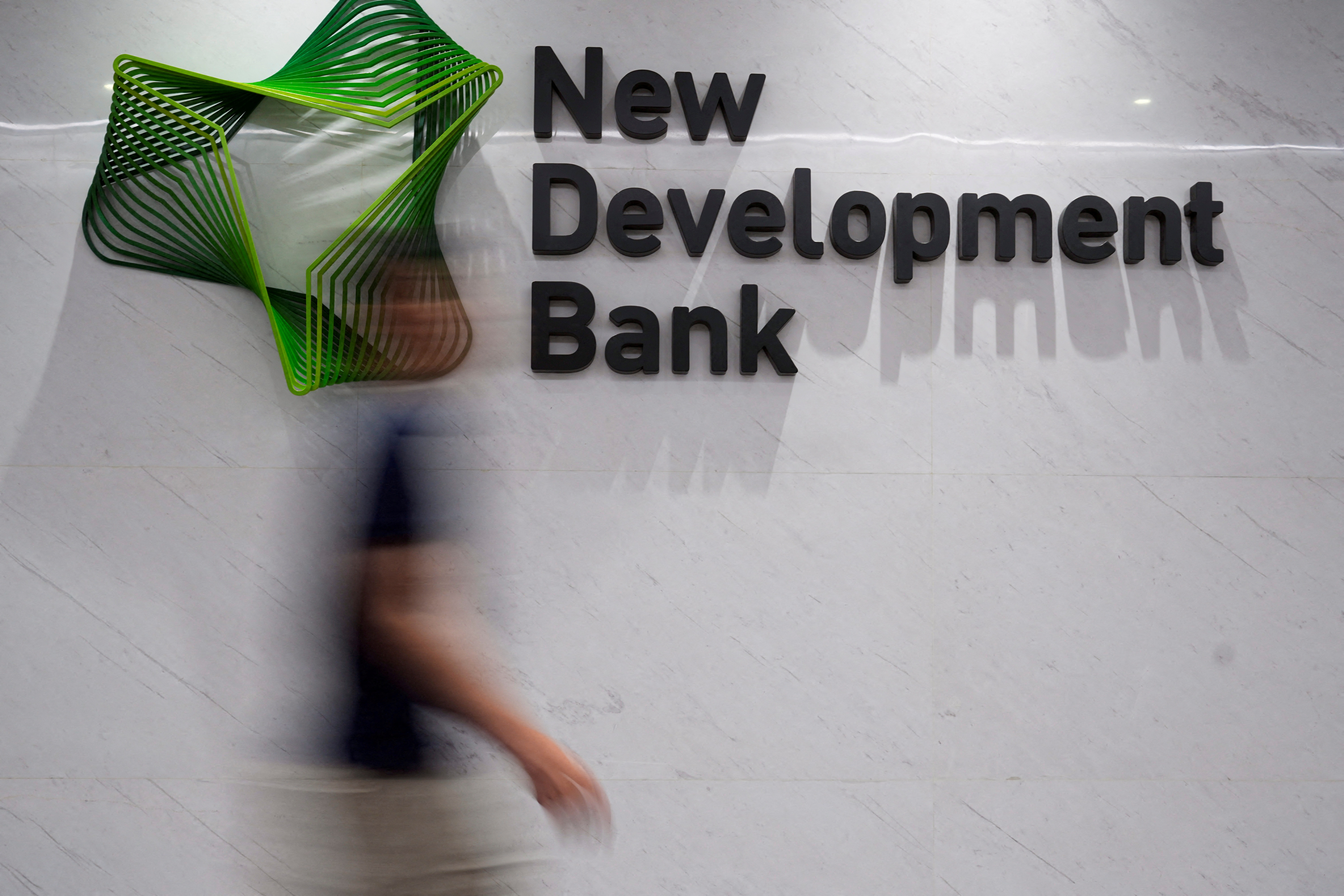JSE:SBK JSE:ABG JSE:SFN JSE:ISA

A view of logo of New Development Bank (NDB) at its headquarters in Shanghai, China July 10, 2023. REUTERS/Aly Song/File Photo Acquire Licensing Rights
JOHANNESBURG, Aug 15 (Reuters) - The development bank founded by the so-called BRICS countries closed the auction for its first South African rand bonds on Tuesday, as it comes under pressure to boost its local currency fundraising and lending.
The New Development Bank's (NDB) two bonds, a 1 billion rand ($52.3 million) five-year note and a 500 million rand three-year note, attracted 2.67 billion rand of bids in total, according to auction results shared by two investors with Reuters.
South Africa's finance minister said that the NDB, which was founded to give the BRICS members - Brazil, Russia, India, China and South Africa - more control of development financing, was not doing enough local currency lending, in an interview with Reuters ahead of the BRICS summit in Johannesburg next week.
The NDB did not respond to a request for comment on the bond auction.
Chief Financial Officer Leslie Maasdorp told Reuters in a recent interview that the bank aims to increase local currency lending, most of which has so far been in the Chinese yuan, from about 22% to 30% by 2026, but that there were limits to de-dollarisation.
The South African bond market has struggled in recent years to attract new issuers to match growing demand from domestic investors looking for quality credit assets.
NDB's three-year rand bond was priced at a floating rate of 95 basis points (bps) above the three-month Johannesburg Interbank Average Rate (Jibar), while the five year was priced at Jibar +105 bps.
The most recent comparable South African government bonds were a 4.5-year bond priced at Jibar +90 bps and a seven year priced at Jibar +120 bps, said Raphi Rootshtain, a portfolio manager at Sasfin Wealth.
"It is interesting to note that most of the underlying lending activities in South Africa are to State Owned Companies (SOEs)," Rootshtain said. "So effectively the NDB will become the new proxy funding vehicle for SOEs which should come with additional risk."
The bond sale was arranged by Standard Bank, which declined to comment, and Absa Bank.
The sale "had... 94% of bids being within or lower than price guidance and the issuance rates representing the tightest spreads achieved by a non-government issuer in 2023," said Kumeshen Naidoo, head of debt capital markets at Absa.
($1 = 19.1206 rand)
Thomson Reuters
Rachel Savage is Africa Senior Markets Correspondent at Reuters, where she covers finance and economics across Sub-Saharan Africa, from sovereign debt crises and IMF programs to foreign exchange markets and cryptocurrencies. Previously she was LGBT+ Correspondent at the Thomson Reuters Foundation for just over three years and was awarded Journalist of the Year in 2021 by the NLJGA: The Association of LGBTQ Journalists, a U.S. group. Before that, Rachel was based in Nairobi and then Lagos as an East and West Africa Correspondent for The Economist, after starting her career a decade ago as a business journalist in London.
August has been rough so far for emerging market stocks and western government bonds, a worrying confluence that may extend losses from 'geo-investment' standoffs and reflect an increasingly polarised world economy.
New Zealand's central bank held its cash rate steady at 5.5% on Wednesday but slightly pushed out when it expects to start cutting borrowing costs to 2025, which provided some support for the New Zealand dollar.